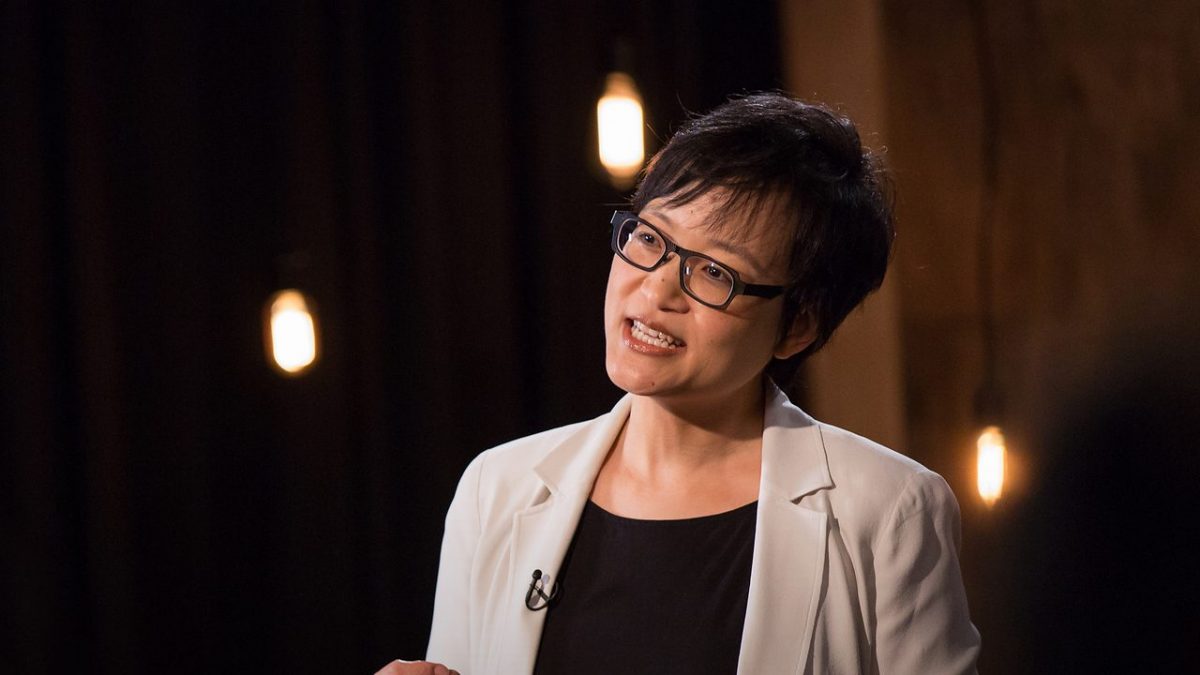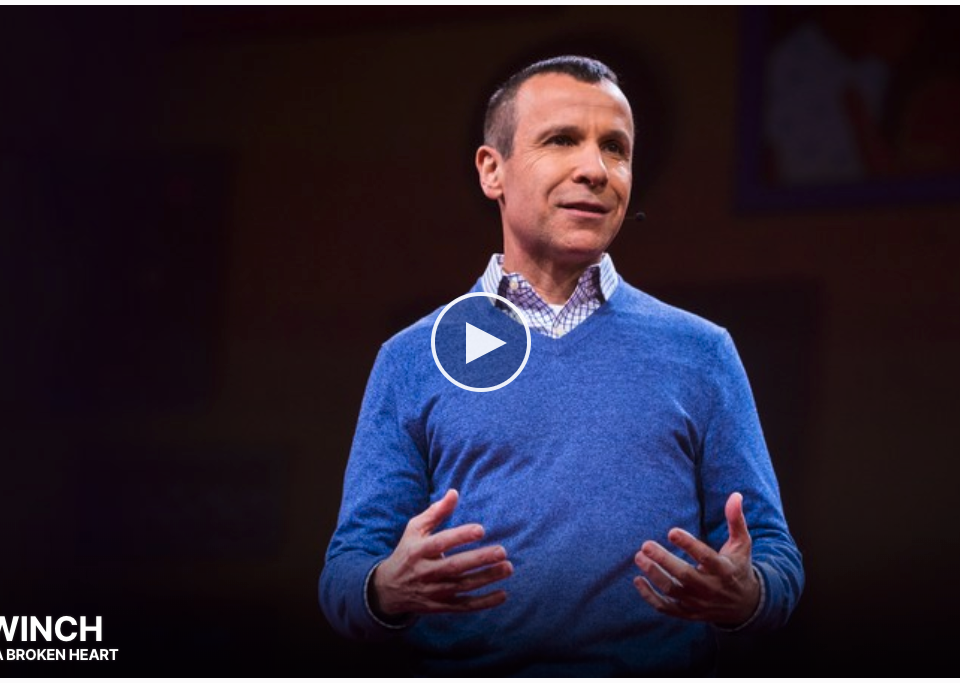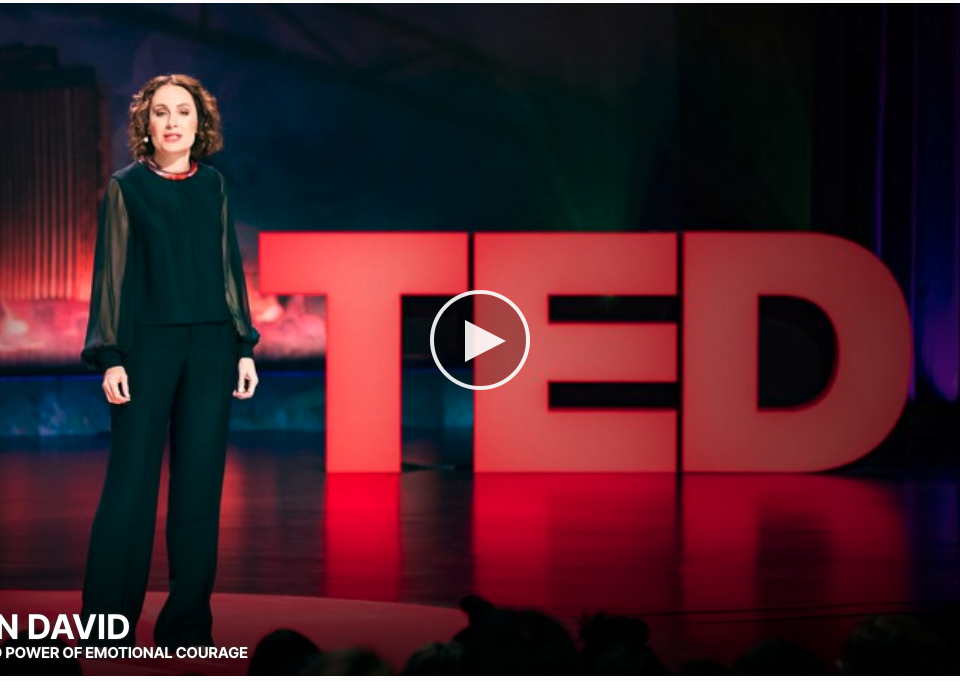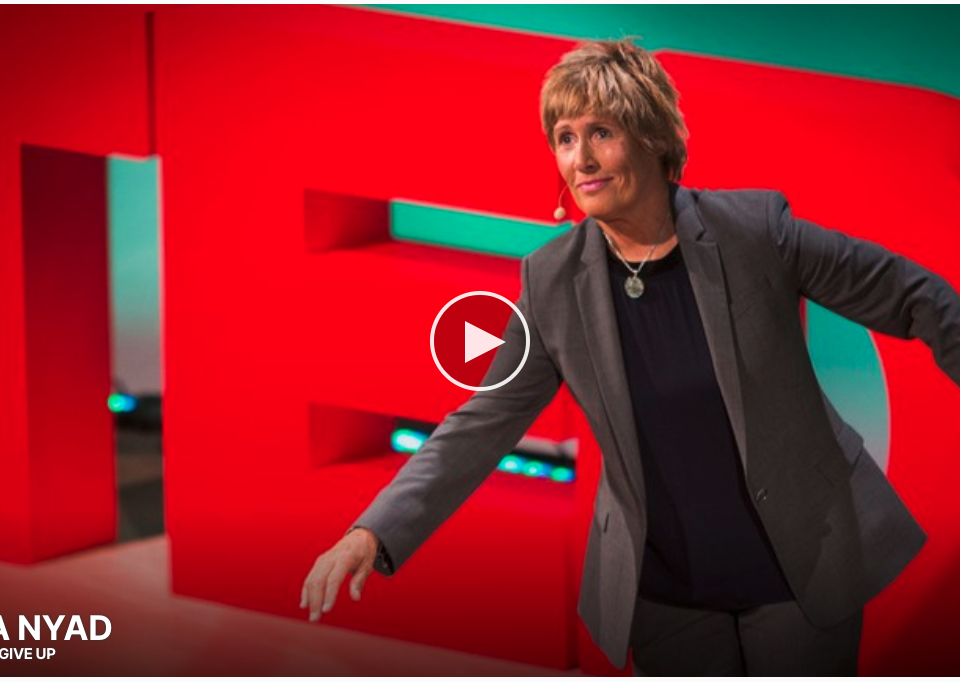
Corruption widespread in 180 countries
16 de outubro de 2019
READING: GENERATION “ME”
23 de outubro de 2019Think of a hard choice you’ll face in the near future. It might be between two careers — artist and accountant — or places to live — the city or the country — or even between two people to marry — you could marry Betty or you could marry Lolita. Or it might be a choice about whether to have children,to have an ailing parent move in with you, to raise your child in a religion that your partner lives by but leaves you cold. Or whether to donate your life savings to charity.
Chances are, the hard choice you thought of was something big, something momentous, something that matters to you. Hard choices seem to be occasions for agonizing, hand-wringing, the gnashing of teeth. But I think we’ve misunderstood hard choices and the role they play in our lives.Understanding hard choices uncovers a hidden power each of us possesses.
What makes a choice hard is the way the alternatives relate. In any easy choice, one alternative is better than the other. In a hard choice, one alternative is better in some ways, the other alternative is better in other ways, and neither is better than the other overall. You agonize over whether to stay in your current job in the city or uproot your life for more challenging work in the country, because staying is better in some ways, moving is better in others, and neither is better than the other overall.
We shouldn’t think that all hard choices are big. Let’s say you’re deciding what to have for breakfast.You could have high fiber bran cereal or a chocolate donut. Suppose what matters in the choice is tastiness and healthfulness. The cereal is better for you, the donut tastes way better, but neither is better than the other overall, a hard choice. Realizing that small choices can also be hard, may make big hard choices seem less intractable. After all, we manage to figure out what to have for breakfast,so maybe we can figure out whether to stay in the city or uproot for the new job in the country.
We also shouldn’t think that hard choices are hard because we are stupid. When I graduated from college, I couldn’t decide between two careers, philosophy and law. I really loved philosophy. There are amazing things you can learn as a philosopher, and all from the comfort of an armchair. But I came from a modest immigrant family where my idea of luxury was having a pork tongue and jelly sandwich in my school lunchbox, so the thought of spending my whole life sitting around in armchairs just thinking … Well, that struck me as the height of extravagance and frivolity. So I got out my yellow pad, I drew a line down the middle, and I tried my best to think of the reasons for and against each alternative. I remember thinking to myself, if only I knew what my life in each career would be like. If only God or Netflix would send me a DVD of my two possible future careers, I’d be set. I’d compare them side by side, I’d see that one was better, and the choice would be easy.
But I got no DVD, and because I couldn’t figure out which was better, I did what many of us do in hard choices: I took the safest option. Fear of being an unemployed philosopher led me to become a lawyer, and as I discovered, lawyering didn’t quite fit. It wasn’t who I was. So now I’m a philosopher,and I study hard choices, and I can tell you, that fear of the unknown, while a common motivational default in dealing with hard choices, rests on a misconception of them. It’s a mistake to think that in hard choices, one alternative really is better than the other, but we’re too stupid to know which, and since we don’t know which, we might as well take the least risky option. Even taking two alternatives side by side with full information, a choice can still be hard. Hard choices are hard not because of us or our ignorance; they’re hard because there is no best option.
Now, if there’s no best option, if the scales don’t tip in favor of one alternative over another, then surely the alternatives must be equally good. So maybe the right thing to say in hard choices is that they’re between equally good options. But that can’t be right. If alternatives are equally good, you should just flip a coin between them, and it seems a mistake to think, here’s how you should decide between careers, places to live, people to marry: Flip a coin.
There’s another reason for thinking that hard choices aren’t choices between equally good options.Suppose you have a choice between two jobs: you could be an investment banker or a graphic artist.There are a variety of things that matter in such a choice, like the excitement of the work, achieving financial security, having time to raise a family, and so on. Maybe the artist’s career puts you on the cutting edge of new forms of pictorial expression. Maybe the banking career puts you on the cutting edge of new forms of financial manipulation.
Imagine the two jobs however you like, so that neither is better than the other.
Now suppose we improve one of them, a bit. Suppose the bank, wooing you, adds 500 dollars a month to your salary. Does the extra money now make the banking job better than the artist one? Not necessarily. A higher salary makes the banking job better than it was before, but it might not be enough to make being a banker better than being an artist. But if an improvement in one of the jobs doesn’t make it better than the other, then the two original jobs could not have been equally good. If you start with two things that are equally good, and you improve one of them, it now must be better than the other. That’s not the case with options in hard choices.
So now we’ve got a puzzle. We’ve got two jobs. Neither is better than the other, nor are they equally good. So how are we supposed to choose? Something seems to have gone wrong here. Maybe the choice itself is problematic, and comparison is impossible. But that can’t be right. It’s not like we’re trying to choose between two things that can’t be compared. We’re weighing the merits of two jobs, after all, not the merits of the number nine and a plate of fried eggs. A comparison of the overall merits of two jobs is something we can make, and one we often do make.
I think the puzzle arises because of an unreflective assumption we make about value. We unwittingly assume that values like justice, beauty, kindness, are akin to scientific quantities, like length, mass and weight. Take any comparative question not involving value, such as which of two suitcases is heavier. There are only three possibilities. The weight of one is greater, lesser or equal to the weight of the other. Properties like weight can be represented by real numbers — one, two, three and so on –and there are only three possible comparisons between any two real numbers. One number is greater, lesser, or equal to the other. Not so with values. As post-Enlightenment creatures, we tend to assume that scientific thinking holds the key to everything of importance in our world, but the world of value is different from the world of science. The stuff of the one world can be quantified by real numbers. The stuff of the other world can’t. We shouldn’t assume that the world of is, of lengths and weights, has the same structure as the world of ought, of what we should do.
So if what matters to us — a child’s delight, the love you have for your partner — can’t be represented by real numbers, then there’s no reason to believe that in choice, there are only three possibilities –that one alternative is better, worse or equal to the other. We need to introduce a new, fourth relation beyond being better, worse or equal, that describes what’s going on in hard choices. I like to say that the alternatives are “on a par.” When alternatives are on a par, it may matter very much which you choose, but one alternative isn’t better than the other. Rather, the alternatives are in the same neighborhood of value, in the same league of value, while at the same time being very different in kind of value. That’s why the choice is hard.
Understanding hard choices in this way uncovers something about ourselves we didn’t know. Each of us has the power to create reasons. Imagine a world in which every choice you face is an easy choice, that is, there’s always a best alternative. If there’s a best alternative, then that’s the one you should choose, because part of being rational is doing the better thing rather than the worse thing,choosing what you have most reason to choose. In such a world, we’d have most reason to wear black socks instead of pink socks, to eat cereal instead of donuts, to live in the city rather than the country, to marry Betty instead of Lolita. A world full of only easy choices would enslave us to reasons.
When you think about it,
It’s nuts to believe that the reasons given to you dictated that you had most reason to pursue the exact hobbies you do, to live in the exact house you do, to work at the exact job you do. Instead, you faced alternatives that were on a par — hard choices — and you made reasons for yourself to choose that hobby, that house and that job. When alternatives are on a par, the reasons given to us, the ones that determine whether we’re making a mistake, are silent as to what to do. It’s here, in the space of hard choices, that we get to exercise our normative power — the power to create reasons for yourself,to make yourself into the kind of person for whom country living is preferable to the urban life.
When we choose between options that are on a par, we can do something really rather remarkable.We can put our very selves behind an option. Here’s where I stand. Here’s who I am, I am for banking.I am for chocolate donuts.
This response in hard choices is a rational response, but it’s not dictated by reasons given to us. Rather, it’s supported by reasons created by us. When we create reasons for ourselves to become this kind of person rather than that, we wholeheartedly become the people that we are. You might say that we become the authors of our own lives.
So when we face hard choices, we shouldn’t beat our head against a wall trying to figure out which alternative is better. There is no best alternative. Instead of looking for reasons out there, we should be looking for reasons in here: Who am I to be? You might decide to be a pink sock-wearing, cereal-loving, country-living banker, and I might decide to be a black sock-wearing, urban, donut-loving artist. What we do in hard choices is very much up to each of us.
Now, people who don’t exercise their normative powers in hard choices are drifters. We all know people like that. I drifted into being a lawyer. I didn’t put my agency behind lawyering. I wasn’t for lawyering. Drifters allow the world to write the story of their lives. They let mechanisms of reward and punishment — pats on the head, fear, the easiness of an option — to determine what they do. So the lesson of hard choices: reflect on what you can put your agency behind, on what you can be for, and through hard choices, become that person.
Far from being sources of agony and dread, hard choices are precious opportunities for us to celebrate what is special about the human condition, that the reasons that govern our choices as correct or incorrect sometimes run out, and it is here, in the space of hard choices, that we have the power to create reasons for ourselves to become the distinctive people that we are. And that’s why hard choices are not a curse but a godsend.
Thank you.
Texto em Português:
Pensem numa escolha difícil que vão enfrentar num futuro próximo. Pode ser entre duas carreiras: artista e contador; ou lugares para se viver: a cidade ou o campo; ou até mesmo duas pessoas para se casar: pode se casar com Betty ou se casar com Lolita. Ou talvez seja uma escolha sobre ter filhos ou não, ter o pai ou a mãe doente morando com você, criar seu filho numa religião que seu parceiro segue mas que o incomoda. Ou doar sua poupança de vida para a caridade.
A chance é que a maior escolha em que você pensou foi algo grande, algo memorável, algo que importa para você. Escolhas difíceis parecem ser ocasiões de agonia, lamentações e ranger de dentes. Mas acho que interpretamos mal as escolhas difíceis e o papel que têm em nossas vidas. Entender as escolhas difíceis revela um poder oculto que todos possuímos.
O que torna uma escolha difícil é a maneira como as alternativas se relacionam. Em qualquer escolha fácil, uma alternativa é melhor do que a outra. Numa escolha difícil, uma alternativa é melhor em certos pontos, a outra alternativa é melhor em outros pontos, e nenhuma das duas é melhor que a outra no geral. Você sofre pensando se deve ficar em seu emprego atual na cidade, ou se desgarrar de sua vida para um trabalho mais desafiador no campo porque ficar é melhor em alguns pontos, e mudar-se é melhor em outros, e nenhum dos dois é melhor que o outro no geral.
Não deveríamos pensar que todas as escolhas difíceis são grandes. Digamos que você está decidindo o que comer de manhã. Você pode comer cereal de grãos ou uma rosquinha de chocolate.Suponha que o que importa na escolha é o paladar e a saúde. O cereal é melhor para você, a rosquinha é bem mais gostosa, mas nenhum dos dois é melhor que o outro no geral, uma escolha difícil. Perceber que pequenas escolhas também podem ser difíceis pode tornar grandes escolhas difíceis parecerem menos intratáveis. Afinal de contas, nós conseguimos decidir o que comer de manhã, então talvez consigamos decidir entre ficar na cidade ou se desgarrar para o novo emprego no campo.
Também não deveríamos pensar que escolhas difíceis são difíceis porque somos estúpidos. Quando me formei na faculdade, não conseguia decidir entre duas carreiras, filosofia e direito. Eu adorava filosofia. (Risos) Há coisas incríveis para se aprender como filósofo, e todas no conforto de uma poltrona. Mas eu sou de uma modesta família de imigrantes onde minha ideia de luxo era ter uma língua de porco e sanduíche com geleia na minha lancheira, portanto a ideia de passar minha vida inteira sentada em poltronas só pensando, bem, aquilo me parecia o cúmulo da extravagância e da futilidade. Então eu peguei minha almofada amarela, desenhei uma linha pelo centro, e fiz o meu melhor para pensar nas razões a favor e contra cada alternativa. Eu me lembro de pensar comigo mesma, se ao menos eu soubesse como seria minha vida em cada uma das carreiras… Se ao menos Deus ou Netflix me mandassem um DVD das minhas duas possíveis carreiras futuras, eu estaria feita.Eu as compararia lado a lado, eu veria que uma era melhor, e a escolha seria fácil.
Mas eu não recebi nenhum DVD. E porque eu não conseguia definir qual era melhor eu fiz o que muitos de nós fazemos em escolhas difíceis: eu escolhi a opção mais segura. O medo de me tornar uma filósofa desempregada me levou a ser advogada, e como eu fui descobrir, advocacia não era para mim. Não era quem eu era. E agora sou uma filósofa, e eu estudo escolhas difíceis, e posso lhes dizer que o medo do desconhecido, como o padrão motivacional comum no trato de escolhas difíceis, se baseia num conceito errado. É um equívoco pensar que nas escolhas difíceis, uma alternativa é realmente melhor que a outra, mas somos estúpidos demais para saber qual, e como não sabemos qual é, podemos bem escolher a opção menos arriscada. Até colocar as duas alternativas lado a lado com todas as informações, uma escolha ainda pode ser difícil. Escolhas difíceis são difíceis não por nossa causa ou de nossa ignorância; elas são difíceis porque não há uma escolha melhor.
Agora, se não há uma opção melhor, se a balança não pende para um dos lados em vez do outro,certamente as duas alternativas são igualmente boas. E talvez o certo sobre escolhas difíceis é que elas são entre duas opções igualmente boas. Isso não pode estar certo. Se as alternativas são igualmente boas, só deveríamos jogar uma moeda, e parece um erro pensar: “É assim que você deveria decidir por uma carreira, lugares para morar, pessoas para casar: jogue uma moeda.”
Há uma outra razão para pensar que escolhas difíceis não são escolhas entre opções igualmente boas. Suponha que você tem que escolher entre dois empregos: você pode ser um banqueiro investidor ou artista gráfico. Há uma série de coisas que são importantes para essa escolha, como a empolgação do trabalho, atingir segurança financeira, ter tempo para construir uma família e assim por diante. Talvez a carreira de artista coloque-o na vanguarda de novas formas da expressão pictórica. Talvez a carreira de banqueiro coloque-o na vanguarda de novas formas de manipulação financeira. Imagine os empregos como quiser, de modo que nenhum seja melhor que o outro.
Agora suponha que melhoremos um deles um pouquinho. Suponha que o banco, cortejando-o,adicione 500 dólares por mês em seu salário. Será que o dinheiro extra agora deixa o emprego de banqueiro melhor que o de artista? Não necessariamente. Um salário maior deixa o emprego de banqueiro melhor do que era antes, mas talvez não seja suficiente para fazer com que ser banqueiro seja melhor do que ser artista. Mas se uma melhora em um desses empregos não o deixa melhor que o outro, então os dois originalmente não podiam ser igualmente bons. Se você começa com duas coisas igualmente boas, e melhora uma delas, essa agora deve ser melhor que a outra. Não é assim que funciona com escolhas difíceis.
E agora temos um enigma. Temos dois empregos. Nenhum é melhor que o outro, e também não são igualmente bons. Então como devemos escolher? Algo parece ter dado errado aqui. Talvez a escolha em si seja problemática e é impossível comparar. Mas isso não pode estar certo. Não é como se estivéssemos tentando escolher entre duas coisas que não podem ser comparadas. Estamos ponderando os méritos de dois empregos afinal de contas, não os méritos do número nove e um prato de ovos fritos. Uma comparação dos méritos totais de dois empregos é algo que podemos fazer, e algo que frequentemente fazemos.
Acho que o enigma nasce por causa de uma suposição irrefletida que fazemos sobre valor. Inconscientemente assumimos que valores como justiça, beleza e gentileza, são similares a quantidades científicas, como comprimento, massa e peso. Tome qualquer pergunta comparativa que não envolva valor, tal como qual de duas malas é mais pesada. Só há três possibilidades. O peso de uma é maior, menor ou igual ao peso da outra. Propriedades como o peso podem ser representadas por números reais; um, dois, três e assim por diante; e só há três possíveis comparações entre dois números reais. Um número é maior, menor ou igual ao outro. Não é assim com valores. Como criaturas pós-iluminismo, nós costumamos assumir que o pensamento científico tem a chave de tudo que importa em nosso mundo, mas o mundo dos valores é diferente do mundo da ciência. As coisas em um mundo podem ser quantificadas com números reais. As coisas no outro mundo não podem. Não devíamos pressupor que o “mundo do é”, de comprimentos e pesos, tem a mesma estrutura do “mundo do deve ser”, do que devemos fazer.
Então, se o que importa para nós — a alegria de uma criança, o amor que tem pelo seu parceiro –não pode ser representado por números reais, não há razão para acreditar que, na escolha, só há três possibilidades, que uma alternativa é melhor, pior ou igual à outra. Precisamos introduzir uma quarta relação, nova, além de ser melhor, pior ou igual, que descreve o que acontece nas escolhas difíceis. Gosto de dizer que as alternativas estão “em pé de igualdade”. Quando alternativas estão em pé de igualdade, pode ser muito importante qual você escolhe, mas uma alternativa não é melhor do que a outra. Em vez disso, as alternativas estão na mesma vizinhança de valores, na mesma liga de valores, enquanto ao mesmo tempo são muito diferentes em tipo de valor. É por isso que a escolha é difícil.
Entender escolhas difíceis desse jeito revela algo sobre nós mesmos que não sabíamos. Cada um de nós tem o poder de criar razões. Imaginem um mundo onde cada escolha que você enfrenta é uma escolha fácil, ou seja, sempre há uma alternativa melhor. Se há uma alternativa melhor, então é essa que você deve escolher, porque parte de ser racional é fazer a melhor coisa ao invés da pior.Escolher o que tem mais razões para ser escolhido. Num mundo assim, nós teríamos razões principalmente para usar meias pretas em vez de meias rosa, para comer cereal em vez de rosquinhas, para viver na cidade em vez de no campo, para casar-se com Betty em vez de Lolita. Um mundo cheio só de escolhas fáceis nos tornaria escravos das razões. Quando pensamos nisso, é loucura acreditar que as razões apresentadas a nós ditaram que tínhamos mais razões para seguir exatamente os hobbies que temos, viver na casa em que vivemos, ter o emprego que temos. Em vez disso, tivemos alternativas que estavam em pé de igualdade, escolhas difíceis, e criamos razões para nós mesmos para escolher aquele hobby, aquela casa e aquele emprego. Quando as alternativas estão em pé de igualdade, as razões apresentadas a nós, aquelas que determinam se estamos cometendo um erro, ficam em silêncio sobre o que fazer. É aqui, no espaço das escolhas difíceis,que conseguimos exercitar nosso poder normativo, o poder de criar razões para nós mesmos, de nos tornarmos o tipo de pessoa para quem viver no campo é preferível à uma vida urbana.
Quando escolhemos entre opções que estão em pé de igualdade, podemos fazer algo realmente notável. Podemos colocar-nos atrás de uma opção. É aqui que eu fico. É assim que eu sou. Fui feito para bancos. Fui feito para rosquinhas de chocolate. Essa resposta em escolhas difíceis é uma resposta racional, mas não é ditada por razões apresentadas a nós. Em vez disso, é apoiada por razões criadas por nós. Quando criamos razões para nós mesmos para nos tornarmos esse tipo de pessoa em vez daquele outro, nós nos tornamos a pessoa que somos com todo o coração. Pode-se dizer que nos tornamos os autores de nossas próprias vidas.
E quando nos deparamos com escolhas difíceis, não deveríamos bater a cabeça na parede, tentando entender qual alternativa é melhor. Não há uma alternativa melhor. Em vez de procurar por razões lá fora, deveríamos buscar razões aqui dentro: Quem eu devo ser? Você pode decidir ser um banqueiro que usa meias cor-de-rosa, adora cereal e mora no campo, e eu posso decidir ser uma artista urbana que usa meias pretas e adora rosquinhas. O que fazemos em escolhas difíceis só depende de cada um de nós.
As pessoas que não exercitam seu poder normativo em escolhas difíceis ficam à deriva. Todos nós conhecemos alguém assim. Eu fiquei insegura e tornei-me advogada. Não exerci a advocacia. Não fui feita para a advocacia. Pessoas à deriva permitem que o mundo escreva a história de suas vidas. Elas deixam mecanismos de recompensa e punição — tapinhas na cabeça, medo, a facilidade de uma opção — determinarem o que elas fazem. Então a lição das escolhas difíceis: reflita em que você pode atuar, naquilo para que você foi feito, e através das escolhas difíceis, torne-se essa pessoa.
Longe de ser fonte de agonia e pavor, escolhas difíceis são oportunidades preciosas para que celebremos o que é especial na condição humana, de que a razão que governa nossas escolhas como corretas ou incorretas às vezes se acaba, e é aqui, no espaço das escolhas difíceis, que temos o poder de criar razões para nós mesmos para nos tornarmos as pessoas diferentes que somos. E é por isso que escolhas difíceis não são uma maldição, mas sim uma dádiva.
Obrigada.





